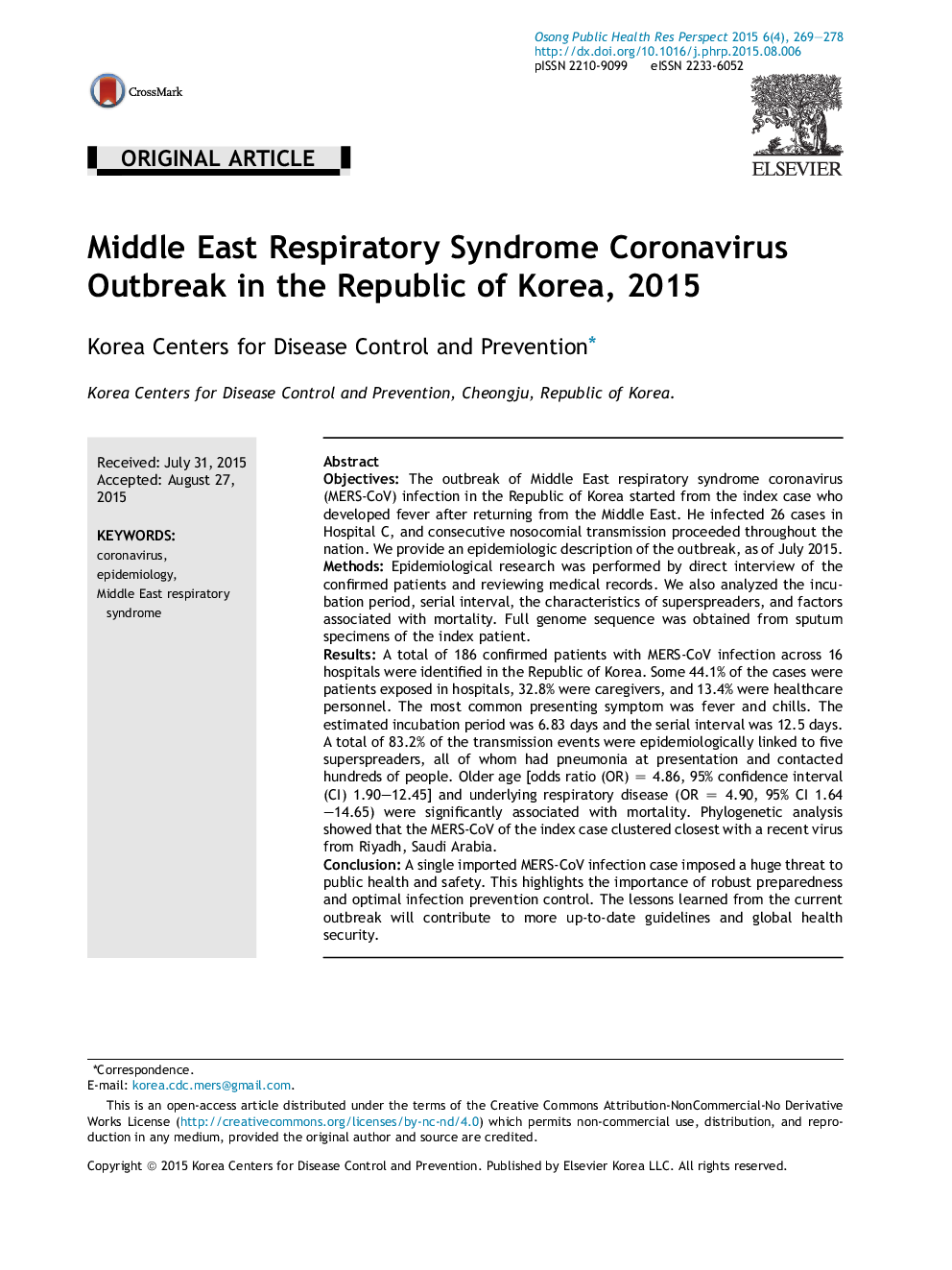| کد مقاله | کد نشریه | سال انتشار | مقاله انگلیسی | نسخه تمام متن |
|---|---|---|---|---|
| 4201919 | 1279431 | 2015 | 10 صفحه PDF | دانلود رایگان |
ObjectivesThe outbreak of Middle East respiratory syndrome coronavirus (MERS-CoV) infection in the Republic of Korea started from the index case who developed fever after returning from the Middle East. He infected 26 cases in Hospital C, and consecutive nosocomial transmission proceeded throughout the nation. We provide an epidemiologic description of the outbreak, as of July 2015.MethodsEpidemiological research was performed by direct interview of the confirmed patients and reviewing medical records. We also analyzed the incubation period, serial interval, the characteristics of superspreaders, and factors associated with mortality. Full genome sequence was obtained from sputum specimens of the index patient.ResultsA total of 186 confirmed patients with MERS-CoV infection across 16 hospitals were identified in the Republic of Korea. Some 44.1% of the cases were patients exposed in hospitals, 32.8% were caregivers, and 13.4% were healthcare personnel. The most common presenting symptom was fever and chills. The estimated incubation period was 6.83 days and the serial interval was 12.5 days. A total of 83.2% of the transmission events were epidemiologically linked to five superspreaders, all of whom had pneumonia at presentation and contacted hundreds of people. Older age [odds ratio (OR) = 4.86, 95% confidence interval (CI) 1.90–12.45] and underlying respiratory disease (OR = 4.90, 95% CI 1.64–14.65) were significantly associated with mortality. Phylogenetic analysis showed that the MERS-CoV of the index case clustered closest with a recent virus from Riyadh, Saudi Arabia.ConclusionA single imported MERS-CoV infection case imposed a huge threat to public health and safety. This highlights the importance of robust preparedness and optimal infection prevention control. The lessons learned from the current outbreak will contribute to more up-to-date guidelines and global health security.
Journal: Osong Public Health and Research Perspectives - Volume 6, Issue 4, August 2015, Pages 269–278
